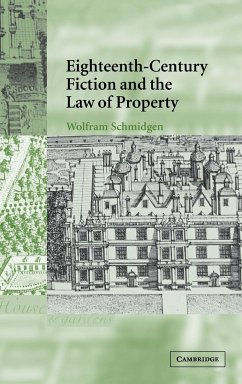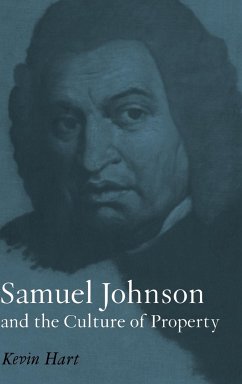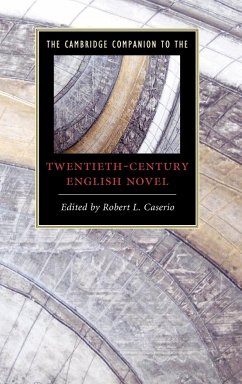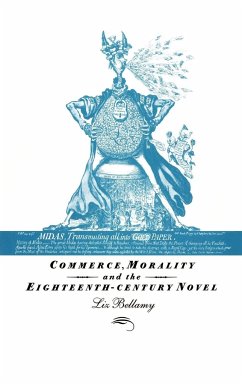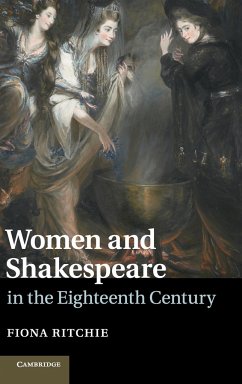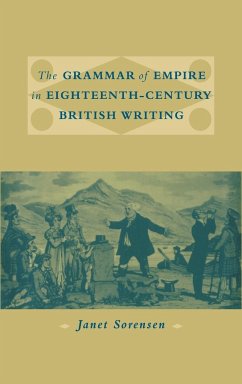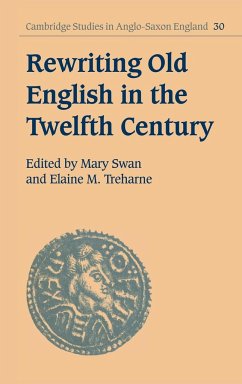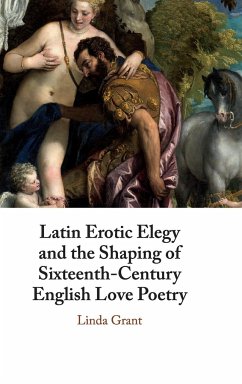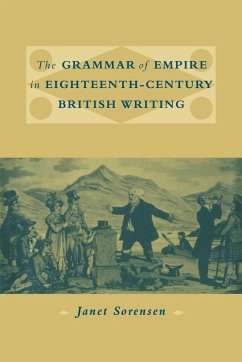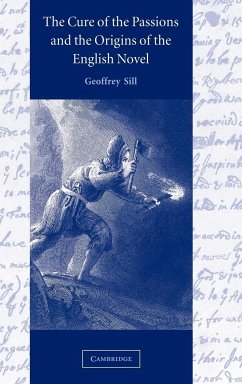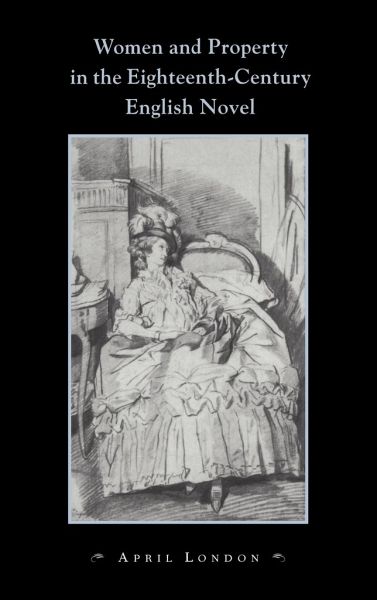
Women and Property in the Eighteenth-Century English Novel
Versandkostenfrei!
Versandfertig in 1-2 Wochen
104,99 €
inkl. MwSt.
Weitere Ausgaben:

PAYBACK Punkte
52 °P sammeln!
This book investigates the critical importance of women to the eighteenth-century debate on property as conducted in the fiction of the period. April London argues that contemporary novels advanced several, often conflicting, interpretations of the relation of women to property, ranging from straightforward assertions of equivalence between women and things to subtle explorations of the self-possession open to those denied a full civic identity. Two contemporary models for the defining of selfhood through reference to property structure the book, one historical (classical republicanism and bou...
This book investigates the critical importance of women to the eighteenth-century debate on property as conducted in the fiction of the period. April London argues that contemporary novels advanced several, often conflicting, interpretations of the relation of women to property, ranging from straightforward assertions of equivalence between women and things to subtle explorations of the self-possession open to those denied a full civic identity. Two contemporary models for the defining of selfhood through reference to property structure the book, one historical (classical republicanism and bourgeois individualism), and the other literary (pastoral and georgic). These paradigms offer a cultural context for the analysis of both canonical and less well-known writers, from Samuel Richardson and Henry Mackenzie to Clara Reeve and Jane West. While this study focuses on fiction from 1740-1800, it also draws on the historiography, literary criticism and philosophy of the period, and on recent feminist and cultural studies.
Table of contents:
Part I. Samuel Richardson and Georgic: 1. Clarissa and the georgic mode; 2. Making meaning as constructive labour; 3. Confederacies of women; 4. 'The work of bodies': reading, writing, and documents; Part II. Pastoral: 5. Pastoral and The Man of Feeling; 6. Colonial narratives: Charles Wentworth and The Female American; Part III. Community and Confederacy: 7. Versions of community: William Dodd and the Magdalen Hospital, Sarah Scott, Clara Reeve; 8. Confederacies of women: Phebe Gibbes and John Trusler; Part IV. The Politics of Reading: 9. The discourse of manliness: S. J. Pratt and Robert Bage; 10. 'Mind without sex': the gendering of radical representation; 11. History, romance, and the anti-Jacobins' 'common sense'; 12. Jane West and the politics of reading; Epilogue.
April London investigates the critical importance of women to the eighteenth-century debate on property as conducted in the fiction of the period. Her wide-ranging study discusses the work of a variety of writers, from Samuel Richardson and Henry Mackenzie to Clara Reeve and Jane West.
A study of the importance of women to the eighteenth-century debate on property as conducted in fiction.
Table of contents:
Part I. Samuel Richardson and Georgic: 1. Clarissa and the georgic mode; 2. Making meaning as constructive labour; 3. Confederacies of women; 4. 'The work of bodies': reading, writing, and documents; Part II. Pastoral: 5. Pastoral and The Man of Feeling; 6. Colonial narratives: Charles Wentworth and The Female American; Part III. Community and Confederacy: 7. Versions of community: William Dodd and the Magdalen Hospital, Sarah Scott, Clara Reeve; 8. Confederacies of women: Phebe Gibbes and John Trusler; Part IV. The Politics of Reading: 9. The discourse of manliness: S. J. Pratt and Robert Bage; 10. 'Mind without sex': the gendering of radical representation; 11. History, romance, and the anti-Jacobins' 'common sense'; 12. Jane West and the politics of reading; Epilogue.
April London investigates the critical importance of women to the eighteenth-century debate on property as conducted in the fiction of the period. Her wide-ranging study discusses the work of a variety of writers, from Samuel Richardson and Henry Mackenzie to Clara Reeve and Jane West.
A study of the importance of women to the eighteenth-century debate on property as conducted in fiction.





